Keynote speakers
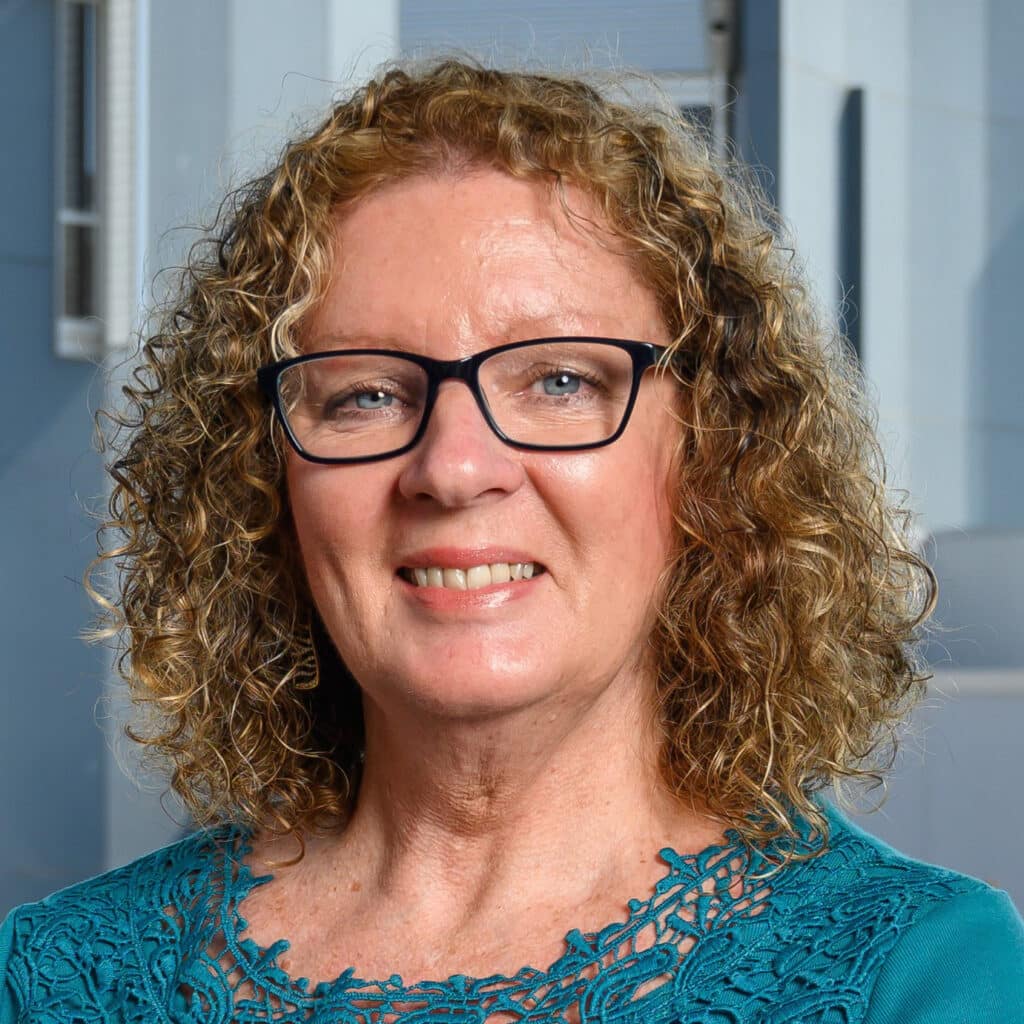
Dr Judith Howard
Associate Professor, School of Early Childhood and Inclusive Education, Faculty of Creative Industries, Education and Social Justice, Queensland University of Technology
Associate Professor Judith Howard is a national leader in Trauma-Aware Education in Australia, with important international reach. Judith comes from an extensive career and experience within government schooling in Queensland. She has worked as a teacher, school counsellor and student behaviour specialist and has held both regional and state leadership positions with the Queensland Education Department. Judith’s work has always had a keen focus on addressing the concerns faced by young learners living with the outcomes of complex trauma and the people working hard to educate them. She promotes a neuroscience-informed approach – to which she believes every educator needs access. Judith oversees pre-service and post-graduate teacher education in Trauma-Aware Education at QUT (including the popular, “Graduate Certificate in Trauma-Aware Education”) and has developed online courses that are reaching thousands nationally and internationally. She supervises a growing number of PhD students who are adding to the research evidence base for Trauma-Aware Education. She is the author of the popular book: “Distressed or Deliberately Defiant: Managing Challenging Student Behaviour due to Trauma and Disorganised Attachment (2013) and her more recent publication, “Trauma-Aware Education” Essential Information and Guidance for Educators, Education Sites and Education Systems” (2022). Judith continues to be busy researching, writing, speaking and training, and developing resources to advance Trauma-Aware Education across Australia.
On the first morning of the conference, Judith will describe the evolving story of Trauma-Aware Education in Australia. From quite humble beginnings, this approach to supporting and educating trauma-impacted learners in schools and early childhood education programs has grown more and more each year, to the extent that we are progressing quickly and importantly towards a significant national “movement” for our country. This movement is now influencing thinking and practice in higher education and has an increasing focus on the personal and professional well-being of our wonderful educators. Judith will conclude by advocating for the important next steps for Trauma-Aware Education in Australia.
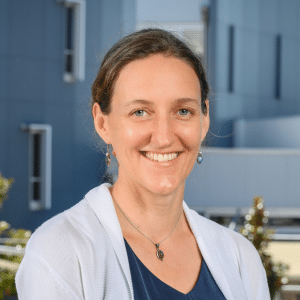
Dr Lyra L’Estrange
School of Early Childhood and Inclusive Education, Faculty of Creative Industries, Education and Social Justice, Queensland University of Technology
Dr Lyra L’Estrange’s research and teaching in trauma-aware education contributes to redefining support systems for children and adolescents living with the outcomes of complex trauma and significant adversity. As a senior lecturer in the School of Early Childhood and Inclusive Education at QUT, Lyra uses her research experience in public health to translate trauma-informed principles into the education space to support learning and development. Lyra has worked with parents, schools and community groups since 2014 in delivering trauma-informed education. At QUT, she teaches undergraduate and post-graduate units in trauma-aware education and child and adolescent development. Her work is grounded in social justice and trauma-aware practices that facilitate an understanding of the biological and neurological mechanisms by which stress and trauma affect learning, engagement, and relating. She is a strong advocate for staff and student wellbeing, has published several research articles and is co-editor of a book series in trauma-aware education.
Understanding the scope of adversity and child maltreatment in Australia is key to addressing the profound impacts of trauma across the lifespan. By understanding the widespread nature of trauma, we can respond more effectively. Lyra will extract crucial insights from the recently released Australian Child Maltreatment Study, presenting key findings essential for educators and education systems, emphasising the importance of prevention and intervention. The data from this study is critical for trauma-aware education, and Lyra will translate its main findings, underscoring the urgency to act. Lyra’s presentation will “set the scene” for Judith to present the evolving journey of trauma-aware education in Australia.

Joe Brummer
Trauma survivor, founder of “Joe Brummer Consulting”, and renowned expert in trauma-informed restorative practices
Joe Brummer is a trauma survivor. Having lived through early exposure to violence, child abuse and neglect, and two violent anti-LGBTQ hate crimes, he turned his healing journey into a career in peacebuilding, restorative justice, and consulting in trauma-informed education. He supports schools and youth justice institutions internationally using a trauma-informed restorative lens to create supportive human-centered environments. He serves as adjunct faculty at Hartford International University for Religion and Peace, teaching the Peacebuilding Skills: Dialogue, Trauma & Restorative Justice course.
He has appeared on dozens of podcasts and webinars and presented at national and international conferences. Joe is certified in Dr. Bruce Perry’s Neurosequential Model in Education and is a member of the Attachment and Trauma Network’s Training Collaborative. His book, Building a Trauma-informed Restorative School: Skills and Approaches for Improving Culture and Behavior (2020) is used by schools across the globe. His next book, Becoming a Trauma-Informed Restorative Educator: Practical Skills to Change Culture and Behavior is co-authored with Margaret Thorsborne and released mid-2024.
Trauma-Informed restorative practices: A symbiotic relationship
In this keynote, Marg and Joe, co-authors of their new book “Becoming a Trauma-informed Restorative Educator: Practical Skills to Change Culture and Behavior”, will outline some of the challenges educators and students face today concerning mental health, the lack of institutional trust among students and parents, and the old ways and habits of thinking about how we develop and manage relationships in our school communities. They will discuss the view that to be truly trauma-informed, educators need to move restorative principles into practice, and to be truly restorative, educators need to be trauma-informed. These links and the interconnected nature of being human and humane are vital for school communities to understand as they develop the school cultures they strive to create. As they write in their new book, "Claiming to be restorative or trauma-aware is not enough. It has to be felt and visible."
Trauma-Aware restorative practices
Join Joe and Marg for an exploration of a three-path journey towards becoming a trauma-informed restorative educator – one who challenges old beliefs and habits regarding how we connect with, teach, and support the lives and skills of our students. They will discuss how this transformation requires educators to examine their own lives and skills and the impact that this approach can have on what they do in the classroom and their relationships with others. Marg and Joe suggest that this is needed as we tackle the breadth of social justice issues across the wider school community and beyond.
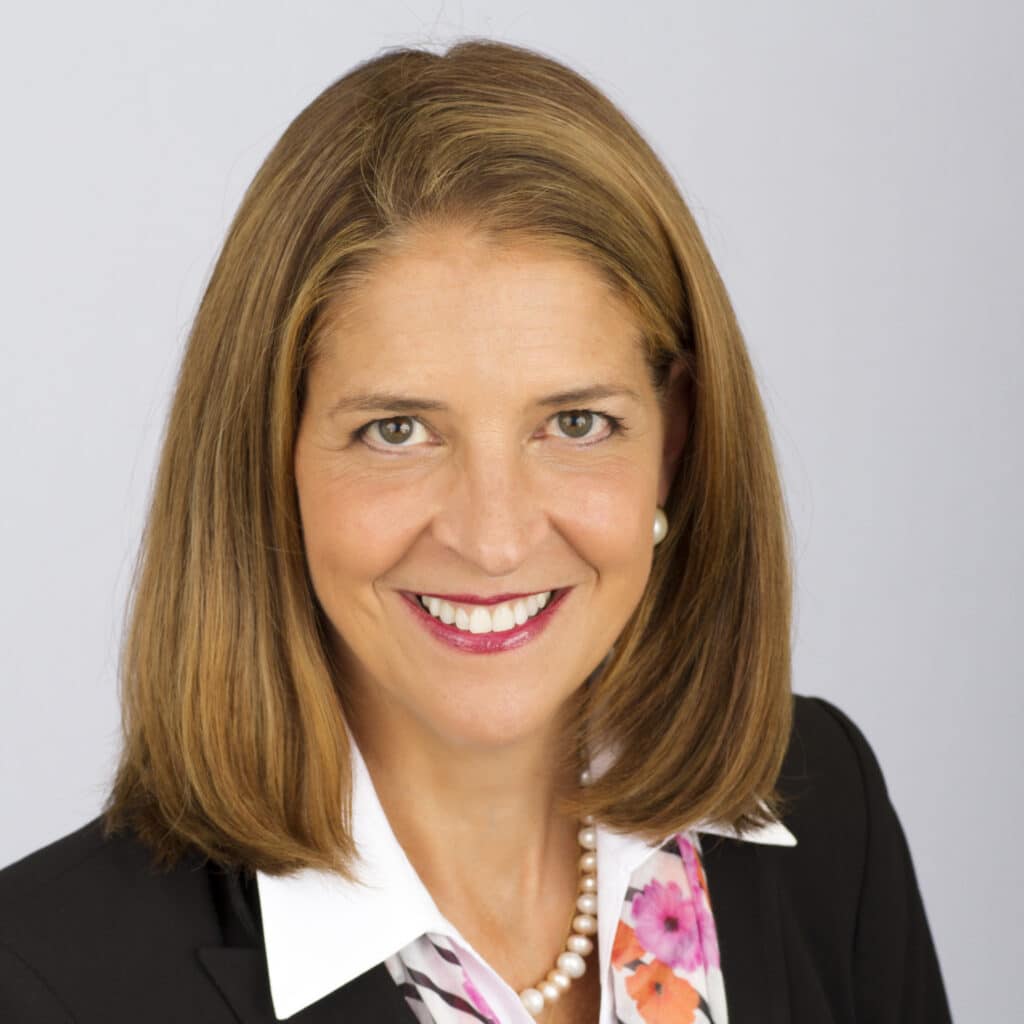
Susan Driscoll
President of Crisis Prevention Institute (CPI)
Susan Driscoll is President of Crisis Prevention Institute (CPI) and oversees the development of all products and programs in addition to all CPI trainers and customer support associates. She joined CPI in 2017 and in 2022 was named a Director of the company. She is based in Milwaukee, Wisconsin.
Prior to joining CPI, Susan served as President and CEO of Wolters Kluwer Health, Professional and Education, where she transformed the business from a traditional book publisher to a subscription-based healthcare content business. She has extensive experience in both healthcare and higher education publishing and training.
Susan also has startup experience: prior to joining Wolters Kluwer, Susan was CEO of iUniverse, an internet-based provider of self-publishing services that was funded by Barnes & Noble and Warburg Pincus.
Her expertise is broad. In addition to her CEO experience, Susan has served as VP of Operations, VP Strategy, VP Marketing, and VP of Product and Technology. She has direct experience in global markets including India and China. Susan was named one of the Top 50 Women in Publishing in 2009, and served on the Executive Board of the Association of American Publishers. Currently, she serves on the Executive Board of ISA, the Association of Learning Providers and is Chair of the Advisory Council for the Raclin Murphy Museum of Art at the University of Notre Dame.
A Trauma Aware and restraint free world: The journey of CPI
To quote Desmond Tutu, “There comes a point where we need to stop just pulling people out of the river. We need to go upstream and find out why they’re falling in.”
This presentation will share the journey of the Crisis Prevention Institute as it transitions from being the world’s largest provider of restrictive intervention training to the provider of solutions designed to eliminate the need for restraint altogether. Susan will share excerpts from CPI’s core trainings that highlight the trauma of restraint, and the connection between neuroscience, trauma, and behavior.
Reframing behaviour through the lens of Neuroscience
In this session Susan Driscoll will present neuroscience principles that are essential for a trauma-aware approach: neuroception (and fight, flight, freeze); brain development; interoception and self-regulation; co-regulation; and intentional practices for building relationships. The presentation will also highlight neuroplasticity – what happens to us when we are exposed to prolonged trauma, but also what is possible with the implementation of trauma aware practices. The presentation will also highlight the specific perspective of neurodiverse individuals who, merely by living in a neurotypical world, are more likely to experience a lack of felt safety and the unintentional stress responses that result.
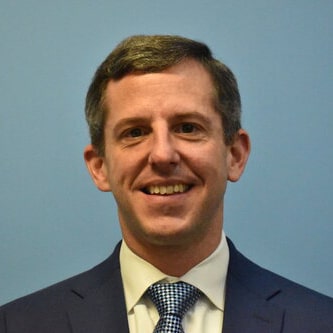
Michael Gregory
Clinical Professor of Law at Harvard Law School (HLS) and a Member of the Faculty at the Harvard Graduate School of Education
Michael Gregory is Clinical Professor of Law at Harvard Law School (HLS) and a Member of the Faculty at the Harvard Graduate School of Education. He is the Faculty Director of the Youth Advocacy & Policy Lab (Y-Lab), the mission of which is to advocate for child- and youth-facing systems that are antiracist, healing-centered, and trauma-sensitive. Y-Lab prioritises elevating the voices of young people as it uses legal and policy tools to transform public systems, including schools, that impact them and their families. Through the Y-Lab’s Trauma and Learning Policy Initiative (TLPI), Gregory supervises law students to represent families of traumatized students in the special education system and to learn and practice the skills of legislative lawyering to advance a public policy agenda for trauma-sensitive schools.
As a result of TLPI’s advocacy, Massachusetts enacted the Safe and Supportive Schools Framework statute in 2014, a first-of-its-kind law that creates a statewide community of practice to support schools and districts to create safe and supportive whole-school learning environments that serve as a foundation for all students to succeed. In 2020, TLPI launched the Students Speak initiative to ensure that policymakers in Massachusetts hear directly from secondary school students about what they need in order to do well in school.
TLPI hopes to grow this initiative into a statewide movement of young people who are empowered to lead the way in improving their schools. Gregory is co-author of TLPI’s two landmark publications Helping Traumatized Children Learn, Volumes 1 and 2 and has also published in the area of special education law. He holds a JD from Harvard Law School and a Master of Arts in Teaching from Brown University. He and his husband are proud parents of an eight-year-old daughter who attends a school for students with dyslexia and who loves dancing to Kidz Bop videos and eating chocolate ice cream.
Trauma-Sensitivity and the Importance of Student, Parent, and Educator Voice: Rethinking School-Based Decision Making
In trauma-sensitive schools, educators recognize that learning requires a sense of safety, trusting relationships, connection, adaptability, and working together as a school community. Such schools focus on creating inclusive and equitable cultures that nurture authentic relationships, foster a sense of belonging, and strengthen student learning and behaviors. However, a common barrier to establishing a schoolwide culture of safety and trust can be the exclusion of important stakeholders—students, parents, and educators—from participation in school-based decision-making processes. This not only results in organizational decisions that fail to reflect the needs and lived experiences of these excluded stakeholders but also reinforces existing power dynamics and sends an implicit message that stakeholders lack the insight and judgment necessary to share in the governance of institutions that serve them. For students and families that have endured traumatic experiences, this denial of agency and voice also compounds the feeling of powerlessness that is at the very core of trauma. In many marginalized communities in the U.S., particularly where school staff does not share lived experiences with students and families, this dynamic of exclusion has existed for generations and has eroded the trust between communities and their schools. This keynote will discuss the work of the Trauma and Learning Policy Initiative (TLPI) to search for an antidote to this vicious cycle of traumatization, alienation, and powerlessness: namely, to re-empower students, families, and educators by creating effective school-based mechanisms for their meaningful participation in making decisions about policies and programs that directly impact them.
Students speak: A co-generational model for empowering youth voice in educational decision making
Students are in the best position to understand what they need. Yet decisions about schooling are often made without listening deeply to students. This disconnect can amplify the feeling of powerlessness many students feel and even exacerbate traumatic symptoms. Conversely, increasing opportunities for student voice and agency in decision making processes can enhance students’ feeling of belonging and improve their academic achievement.
This Master Class will introduce Students Speak, an initiative of the Trauma and Learning Policy Initiative (TLPI) that supports students from historically marginalized groups in the U.S., including many who have endured traumatic experiences, to raise their voices about what they need in order to do well in school while strengthening their advocacy skills. The session will share the details of an innovative mentoring process that supports students of all backgrounds and abilities to prepare and deliver testimonial statements about their school experiences to lawmakers.
Participants will learn Students Speak’s protocol for supporting students to
1) create and share stories about their school experiences;
2) develop self-knowledge from these stories about what they need in order to do well in school;
3) prepare and deliver written testimonial statements to lawmakers; and
4) identify key themes in their statements that resonate with common themes articulated by other students.
Participants will also understand key priorities that secondary school students in the Boston, Massachusetts area have identified as important for them to do well in school. Finally, participants will become familiar with and practice applying Hart’s Ladder of Participation, a framework for understanding and creating ethical and empowering youth-adult collaborations.
Group conversation in the session will focus on
1) surfacing participants’ expertise and experiences with centering the voices of young people in their own work and
2) discussing the implications of these efforts for trauma-sensitive practice.

Sarah Ralston
CEO at "Rebooting Life" and "Resilient Us"
Sarah Ralston is the CEO at Rebooting Life and Resilient Us. Based on her work over two decades, as a therapist and educator in Asia and Australia and in in Australian state, federal and international community development, Sarah developed her multidisciplinary framework that supports positive behavioural change. She combined her formal studies in anthropology, psychology and counselling (B Arts (Hons), Grad Dip Korean Lang., M Arts, Grad Dip Psych, Psych. Hons) with training and qualifications in trauma studies, neuroscience, counselling, yoga and mindfulness. In response to a lack of effective complex (childhood) trauma interventions, Sarah pioneered the development Reboot in 2005 and has since delivered highly recommended, experiential and practical training to 15,000s of participants.
Her Whole-Brain Framework and neuroscience-based tools have led to the reduction of behaviour incidents in the many schools she has supported by up to 50%, whilst also clearly enhancing student learning engagement. Witnessing the impact educators and frontline staff in schools and organisations, Sarah created Resilient Us which uses a multidisciplinary framework to help minimise the impact of high-demand and trauma-impacted workspaces, maximise workplace satisfaction and provide interventions that boost overall resilience and wellbeing.
Trauma-aware resilience: How to stay present, integrated, and effective in frontline work
Working to transform the impact of childhood trauma is enormously rewarding, and at times absolutely exhausting. The unpredictable and illogical behaviours and disclosures related to trauma exposure can be challenging on many levels. It can feel like a superhuman task. In the face of these challenges our professional practice is dependent on how calm and integrated our nervous systems are. This practical session draws from research and work with over 6000 educators to go beyond self-care with daily strategies to boost both individual and collective resilience. Discover the most effective ways to stay within your window of tolerance, present and effective for clients and colleagues and proactively reduce the risk for compassion fatigue, emotional burnout, and vicarious trauma.
Masterclass 1: The contagious nature of trauma: The why and how trauma-related stress impacts you, your colleagues and organisation as a whole.
Trauma is contagious and unless this contagion is effectively addressed, we witness the inevitable decline of staff wellbeing, performance and morale. It is becoming increasingly clear that trauma aware practices in the classroom can only flourish when staff are happy and healthy. Common patterns of perception and behaviour emerge that undermine any attempt at new practice. In this practical session we will explore both why and how trauma-related behaviours and disclosures impact on individuals, our collegial relationships and organisational operations. Discover the common symptoms and behaviours of those effected by traumatic stress. We will explore regulatory drift; the "Window of Tolerance" in staff (signs that staff are impacted by emotional burnout, compassion fatigue and/or vicarious trauma) and how trauma-based dynamics and operations sabotage best intended plans. Join us to discover why new practices aren’t sticking and how to ensure a whole-school trauma aware approach includes the staff community and daily operations.
Masterclass 2: Staying strong and calm: Practical and proven ways to build individual and collective resilience across your organisation
When working in highly demanding settings self-care alone isn’t enough. This practical session draws from research and work with over 6000 educators to go beyond self-care with daily trauma aware strategies to boost both individual and collective resilience. Discover keyways that individuals can reduce the impact of trauma-related work and minimise levels of compassion fatigue, relationship breakdowns and factionalism at work, vicarious trauma and emotional burnout. We will focus on the whole-brain strategies to bring greater joy and productivity to trauma-aware work including somatosensory approaches, morning routines, self-regulation mini practices throughout the day, forms of compassion and practices to reduce accumulated stress loads. As collective resilience has been shown to have significant influence over individual wellbeing, we will also discuss the practical ways organisations can embed trauma-aware approaches to enhance whole staff wellbeing and collegiality. This Master Class will also address dealing with acute crisis events and supporting stressed staff.
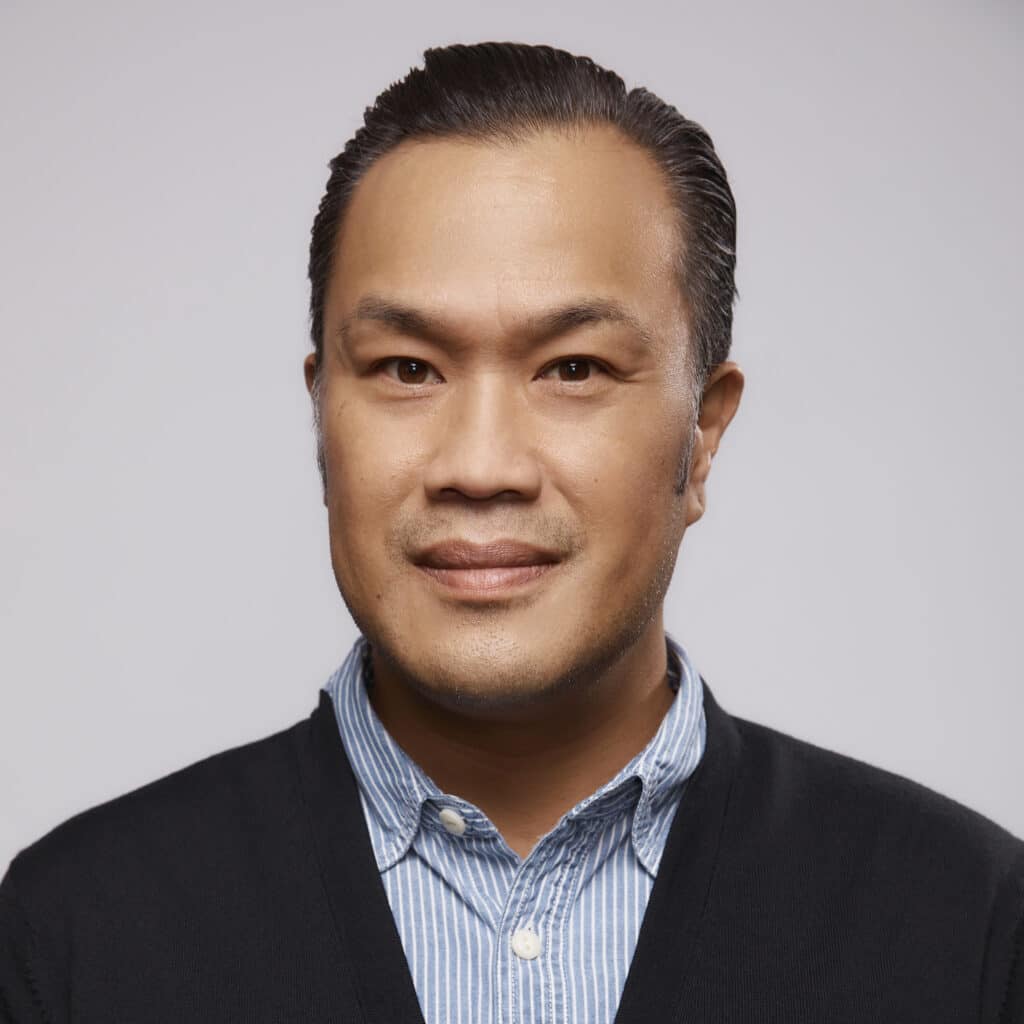
Dr Tom Brunzell
Director of Education at Berry Street
Dr Tom Brunzell (MST, EdM, PhD) has experience as a teacher, school leader, researcher and education advisor. Tom completing his teacher qualifications at Yale University and commenced his career as an educator in the United States. Currently he is the Director of Education at Berry Street and Honorary Fellow at the University of Melbourne Graduate School of Education. His research at the University of Melbourne investigates trauma-informed strengths-based classroom strategies and both the negative impacts of secondary traumatic stress and the positive impacts of wellbeing on teachers and leaders, working towards educational equity in their communities. Dr Brunzell has authored and co-authored many research and other articles and co-authored the popular book, Creating Trauma-Informed Strengths-Based Classrooms: Teacher Strategies for Nurturing Students’ Healing, Growth, and Learning (2021) with Dr Jacolyn Norrish.
What’s next for trauma-aware education? Strategies for all schools to learn, apply and sustain
Trauma-aware education currently draws upon evidence emerging from allied and interdisciplinary scholarship from education, neuroscience, therapeutics, social care, and wellbeing when providing durable strategies for teaching and learning. But how do we proactively ensure that trauma-aware education continues to meet the evolving needs within our school communities and beyond? Given our collective goals to innovate and sustain trauma-aware education, Dr Tom Brunzell will propose future directions for schools, their leadership teams, and researchers alike, to leverage, develop, and sustain students' strengths whilst also supporting their differentiated and often complex unmet needs.
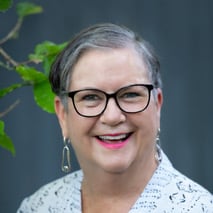
Marg Thorsborne
Managing Director of Margaret Thorsborne & Associates and Thorsborne and Associates United Kingdom and renowned leader in trauma-informed restorative practice
Margaret Thorsborne (Marg) is the Managing Director of Margaret Thorsborne & Associates and Thorsborne and Associates United Kingdom. She is committed to improving the way people relate to each other in schools, workplaces & other community groups by providing processes that allow deeply negative feelings to be gradually transformed into cooperation. She strongly suggests that as relationships are restored, job satisfaction, morale and productivity can improve. This commitment to healthy relationships can also be found in her extensive work with schools to improve the way they work with young people in responding to wrongdoing, creating healthier and safer communities.
Marg has been awarded an Order of Australia Medal for her services to education, both locally and internationally. She consults to public and private sector businesses and organisations to enhance workplace relationships and the management of high-level conflict & inappropriate behaviour. Marg is co-author with Joe Brummer for their new book, Becoming a Trauma-Informed Restorative Educator: Practical Skills to Change Culture and Behavior (2024).
Trauma-Informed restorative practices: A symbiotic relationship
In this keynote, Marg and Joe, co-authors of their new book “Becoming a Trauma-informed Restorative Educator: Practical Skills to Change Culture and Behavior”, will outline some of the challenges educators and students face today concerning mental health, the lack of institutional trust among students and parents, and the old ways and habits of thinking about how we develop and manage relationships in our school communities. They will discuss the view that to be truly trauma-informed, educators need to move restorative principles into practice, and to be truly restorative, educators need to be trauma-informed. These links and the interconnected nature of being human and humane are vital for school communities to understand as they develop the school cultures they strive to create. As they write in their new book, "Claiming to be restorative or trauma-aware is not enough. It has to be felt and visible."
Trauma-Aware restorative practices
Join Joe and Marg for an exploration of a three-path journey towards becoming a trauma-informed restorative educator – one who challenges old beliefs and habits regarding how we connect with, teach, and support the lives and skills of our students. They will discuss how this transformation requires educators to examine their own lives and skills and the impact that this approach can have on what they do in the classroom and their relationships with others. Marg and Joe suggest that this is needed as we tackle the breadth of social justice issues across the wider school community and beyond.
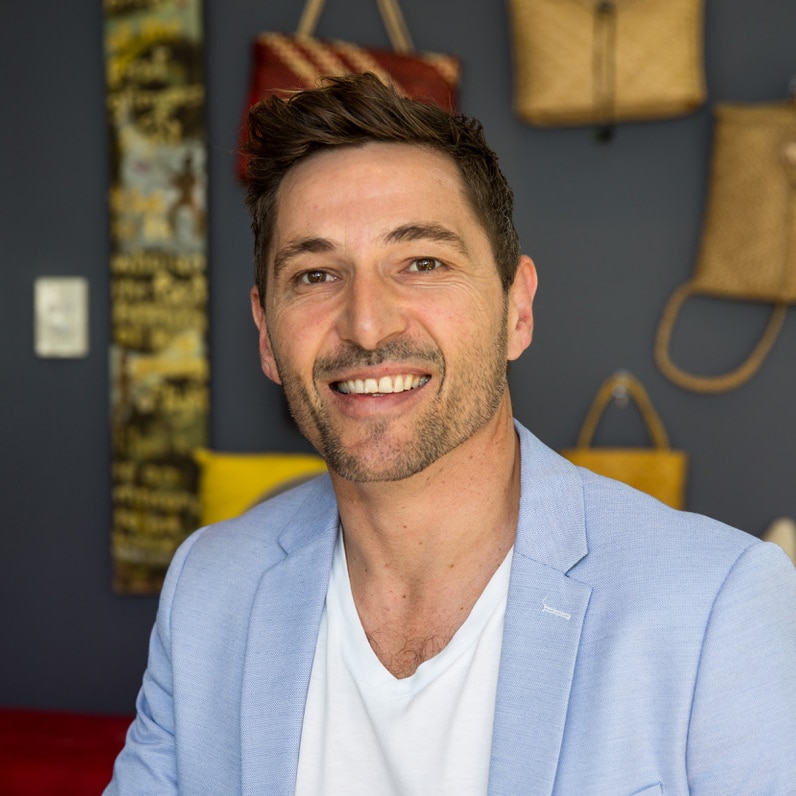
Nathan Wallis
Neuroscience Educator at Xfactor Education Ltd.
Nathan Wallis is a father of three & foster parent with a professional background in child counselling, teaching and social service management.
He lectured in Human Development at the University of Canterbury, Christchurch, New Zealand and was also a board member and senior trainer with the national body responsible for the dissemination of neuroscientific research to professionals.
He has developed a reputation as a lively and engaging speaker who uses humour and plain language to make this complex topic come to life.
Nathan is a regular on Radio and Television shows in New Zealand, sharing his expertise on child development. In 2010 he founded a private training consultancy, X Factor Education Limited, with the goal of facilitating easy to understand professional development training reflecting the latest neuroscience discoveries and their practical implications for everyday practice. Since then he has been in hot demand, delivering well over 200 presentations year in New Zealand Australia and internationally.
‘Change your brain - change your life!’ takes a broader perspective than Nathan’s previous talks. This new discussion explores the inherent ability in everyone’s brain to be able to change the ‘wiring’ of their brain and thereby improve their level of happiness, well-being and overall quality of life.
Brief Overview:
Nathan’s message is that we are not subject to the biology dictated by the brain, but rather, it’s actually an interactive process – the biology of the brain is also dictated by our thoughts and actions. Or alternatively, our brains are voice activated and we are far more in control of our brains than we realise.
This talk will update you (in Nathan’s usual plain, direct, ‘southern-man style’ kind of way!) on Neuroplasticity - or the brains ability to change itself - and how to do this.
This is the same information Nathan shares with trauma experts and all manner of professionals across New Zealand, Australia and China. This seminar will be of interest to anyone who is committed to self-development and improving the quality of their lives. It will also be of interest to anyone working with trauma, or in roles helping other people improve the quality of their lives.
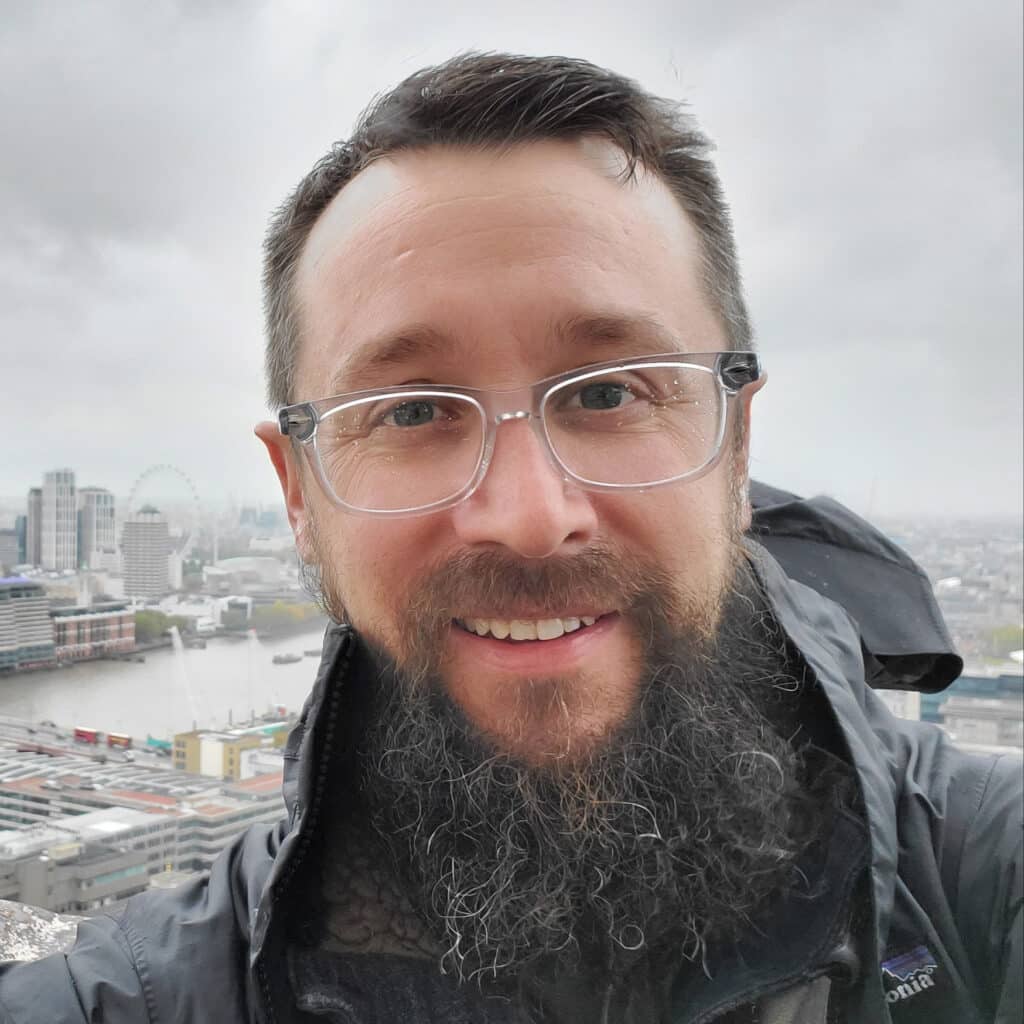
Mathew Portell
Director, Education and Outreach at "PACE’s Connection" and founder of "Trauma Informed Educators Network"
Mathew Portell utilises his experience as an educator, school administrator, podcaster, writer, and international speaker to impact education globally as an innovator and pioneer of trauma-informed education. In his tenure as the principal of Fall-Hamilton Elementary in Nashville, Tennessee, he drew from the most current neuroscience to transform the school into an international model school for trauma-informed practices. Mathew founded the Trauma Informed Educators Network, a global network of over 31,000 practitioners, which he supports with a weekly podcast and yearly conference. Mathew’s passion and experience have made him a globally sought-after keynote speaker and facilitator. In his current role as Director of Communities with PACEs Connection, Mathew supports cross-sector community collaboration to inform and support the development of resilient and trauma-informed communities. Portell has received several recognitions for his work, but the most notable was the Elementary Principal of the Year in 2021 for Metro Nashville Public Schools, a region that serves nearly 90,000 students.
Embracing empathy: Uniting for a global Trauma-Aware movement
You are not alone! In today's world, understanding and addressing trauma is not just a personal journey, but a global imperative. Join Mathew as he delves into the heart of the Global Trauma- Aware Movement. This transformative discussion will explore the significance of cultivating empathy, awareness, and action on a global scale to create supportive environments for individuals affected by trauma. Mathew will explore the foundational principles of trauma-informed care and the critical role this plays in our communities, institutions, and policies. Through compelling insights and real-life examples, Mathew will explore the power of a trauma-informed approach in fostering resilience, healing, and understanding across cultures, societies, and nations - one school at a time! Come, join this impactful conversation, and be part of the movement that seeks to create a more compassionate and understanding world, where trauma is met with empathy, healing, and support.
Harmony in understanding: Forging strong partnerships between schools and communities for Trauma-Aware support
Join Mathew to explore the dynamic interplay between schools and communities in fostering trauma-informed support systems. He will discuss the pivotal role of collaboration in creating a supportive environment for individuals affected by trauma and will delve into the essential elements that pave the way for effective partnerships, emphasizing the need for schools and communities to harmonize their efforts. This discussion will highlight the mutual benefits that arise when schools and local communities come together to create a unified, trauma-aware support network. Drawing from real-world examples and successful case studies, Mathew will showcase the transformative impact of cohesive partnerships. From shared resources and knowledge to the development of joint strategies, he will explore how these collaborations can create a nurturing environment that supports individuals dealing with trauma.
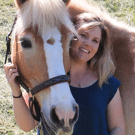
Jaycee Dugard
Abduction survivor and advocate, co-founder of the “Polyvagal Equine Institute” and founder of the “JAYC Foundation”
Jaycee Dugard is an abduction survivor and advocate. Since being rescued from an 18-year abduction in 2009, Jaycee has used her freedom and her voice to share her unique survivor experience. She co-created the JAYC Foundation to help other families who have suffered a familial or non-familial abduction, or other trauma and encourages the collaboration of various organizations to provide ‘Protected Spaces’ for families and individuals to heal. Jaycee is the co-creator of education programs including the Ruthless Kindness’s Empathy Education Curriculum. She is co-founder of the Polyvagal Equine Institute with longtime friends, Dr Rebecca Bailey and equine expert Margie McDonald. Together they share programs, videos and workshops focusing on incorporating horses with understandings of Polyvagal Theory.
Jaycee is author of A Stolen Life (2011) and Freedom: My Book of Firsts (2016): memoirs that she wrote that detail her eighteen years in captivity, eventual rescue, and recovery process. She presents with Dr Bailey, reinforcing her work and emphasising victims’ innate resiliency. She recently co-authored Appeasement: Replacing Stockholm Syndrome as a Definition of a Survival Strategy (2023) with fellow authors, Dr Porges, Dr Bailey and Dr Smith. Jaycee enjoys spending time with her family and her beloved four-legged companions in California.
Creating protected spaces: A journey through trauma and healing
In the keynote "Creating Protected Spaces: A Journey through Trauma and Healing," Dr. Rebecca Bailey and Jaycee Dugard share their experiences through the lens of the survivor and healer, highlighting resilience, recovery, and the power of protected spaces in the face of trauma. Dr. Rebecca Bailey, renowned for her expertise in trauma therapy and family systems, offers invaluable insights into the creation of such spaces for survivors. Drawing from her extensive experience, Dr. Bailey illuminates the multifaceted dynamics of trauma recovery and the essential role of supportive environments. Together, Dr. Bailey and Jaycee Dugard weave a rich tapestry of wisdom, combining personal experiences with professional insights to inspire hope and resilience in the face of adversity. Through their collaborative dialogue, they showcase the transformative power of empathy, compassion, and connection in fostering healing and growth. As they delve into the nuances of trauma and healing, Dr. Bailey and Jaycee Dugard guide audiences on a journey of understanding, empathy, and empowerment. Their keynote serves as a beacon of hope, illuminating the path toward creating protected spaces where survivors can find solace, support, and the opportunity to reclaim their lives.
Masterclass 1: Polyvagal Equine Assisted Interventions: Enhancing your Toolbox
In this masterclass, join Jaycee Dugard and Dr. Rebecca Bailey as they delve into the transformative realm of Polyvagal Equine Assisted Interventions. Drawing from their combined expertise in trauma recovery and equine therapy, Jaycee and Dr. Bailey will guide participants through an exploration of how equine-assisted interventions can enhance their therapeutic toolbox. Through a combination of personal insights, professional knowledge, and practical techniques, participants will gain a comprehensive understanding of how to integrate Polyvagal Theory into their equine therapy practices. From establishing safety to fostering connection and promoting emotional regulation, this masterclass offers invaluable guidance for mental health professionals seeking to elevate their work with trauma survivors and other vulnerable populations.
Masterclass 2: What’s in a name? Redefining Trauma Survivor Experiences: Focusing the clinical lens on survivors
In this illuminating masterclass, Jaycee Dugard and Dr. Rebecca Bailey collaborate to redefine trauma survivor experiences by refocusing the clinical lens. Through a blend of personal narratives and clinical insights, they navigate the complexities of trauma recovery, shedding light on the nuanced needs and experiences of survivors. Participants will explore innovative approaches to trauma therapy, delving into the significance of language, identity, and empowerment in the healing journey. With a keen focus on fostering resilience and reclaiming agency, Jaycee and Dr. Bailey offer practical strategies and profound perspectives to support mental health professionals in providing holistic and empowering care to survivors. Join us for an enlightening exploration that transcends traditional paradigms, empowering clinicians to honor the unique narratives and strengths of trauma survivors.
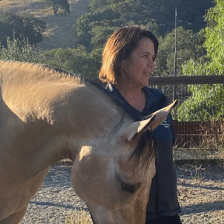
Dr Rebecca Bailey, Ph.D
Co-founder of the “Polyvagal Equine Institute” and Director of “Transitioning Families”
Dr Rebecca Bailey, Ph.D. is a family psychologist, equestrian and world-renowned professional teacher, speaker, author, and entrepreneur. She is co-founder of the Polyvagal Equine Institute and Connection Focused Therapy and founder of Transitioning Families. She is a consultant with organizations such as The JAYC Foundation, the National Center for Missing and Exploited Children, the Malouf Foundation, and the Elizabeth Smart Foundation. With over 35 years of experience in the field, she is dedicated to the notion that authenticity, common sense, and kindness are the crucial components for effective treatment, and that to truly connect with others, we must first understand our own nervous system and its impact on our actions and reactions. Her lifelong relationship with horses and her love for all animals continues to inform her work and understanding of the human condition. She is author of two books: Safe Kids: Smart Parents (2013) and Equine Connections – Polyvagal Principles (2021). Rebecca has also authored numerous articles on polyvagal principles and the application of equine interventions for needy populations. She is lead author with Jaycee Dugard, Dr S Smith, and Dr Porges on an article examining appeasement, which contributed to a change in how rape and resistance is viewed and adjudicated in Japan.
Creating protected spaces: A journey through trauma and healing
In the keynote "Creating Protected Spaces: A Journey through Trauma and Healing," Dr. Rebecca Bailey and Jaycee Dugard share their experiences through the lens of the survivor and healer, highlighting resilience, recovery, and the power of protected spaces in the face of trauma. Dr. Rebecca Bailey, renowned for her expertise in trauma therapy and family systems, offers invaluable insights into the creation of such spaces for survivors. Drawing from her extensive experience, Dr. Bailey illuminates the multifaceted dynamics of trauma recovery and the essential role of supportive environments. Together, Dr. Bailey and Jaycee Dugard weave a rich tapestry of wisdom, combining personal experiences with professional insights to inspire hope and resilience in the face of adversity. Through their collaborative dialogue, they showcase the transformative power of empathy, compassion, and connection in fostering healing and growth. As they delve into the nuances of trauma and healing, Dr. Bailey and Jaycee Dugard guide audiences on a journey of understanding, empathy, and empowerment. Their keynote serves as a beacon of hope, illuminating the path toward creating protected spaces where survivors can find solace, support, and the opportunity to reclaim their lives.
Masterclass 1: Polyvagal Equine Assisted Interventions: Enhancing your Toolbox
In this masterclass, join Jaycee Dugard and Dr. Rebecca Bailey as they delve into the transformative realm of Polyvagal Equine Assisted Interventions. Drawing from their combined expertise in trauma recovery and equine therapy, Jaycee and Dr. Bailey will guide participants through an exploration of how equine-assisted interventions can enhance their therapeutic toolbox. Through a combination of personal insights, professional knowledge, and practical techniques, participants will gain a comprehensive understanding of how to integrate Polyvagal Theory into their equine therapy practices. From establishing safety to fostering connection and promoting emotional regulation, this masterclass offers invaluable guidance for mental health professionals seeking to elevate their work with trauma survivors and other vulnerable populations.
Masterclass 2: What’s in a name? Redefining Trauma Survivor Experiences: Focusing the clinical lens on survivors
In this illuminating masterclass, Jaycee Dugard and Dr. Rebecca Bailey collaborate to redefine trauma survivor experiences by refocusing the clinical lens. Through a blend of personal narratives and clinical insights, they navigate the complexities of trauma recovery, shedding light on the nuanced needs and experiences of survivors. Participants will explore innovative approaches to trauma therapy, delving into the significance of language, identity, and empowerment in the healing journey. With a keen focus on fostering resilience and reclaiming agency, Jaycee and Dr. Bailey offer practical strategies and profound perspectives to support mental health professionals in providing holistic and empowering care to survivors. Join us for an enlightening exploration that transcends traditional paradigms, empowering clinicians to honor the unique narratives and strengths of trauma survivors.


